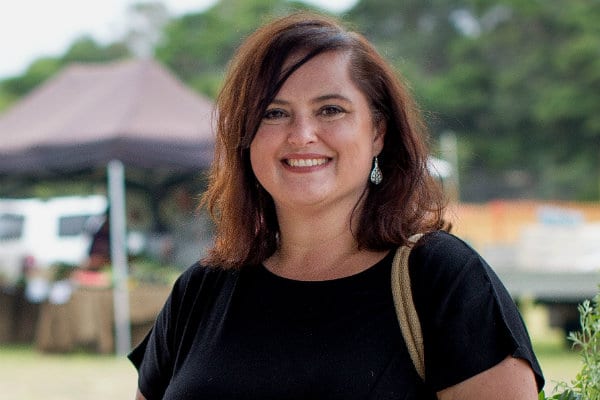The election of President Trump has sparked global outrage for all sorts of reasons.
Chief among these is his treatment of women and the establishment of a cabinet that is ‘more male’ than any US president since Ronald Reagan.
There are, of course, a host of other issues to be worried about, but this is the one that saw so many million people around the world take to the streets to make a stand.
In Melbourne and Sydney thousands of people marched not as part of a formal anti-Trump movement, but to take a stand against hate speech, misogyny, bigotry and xenophobia.
This is a good thing.
In the midst of our Trump-fuelled outrage, we mustn’t forget that Australia hardly represents a beacon of light in terms of women’s representation at the most senior levels in society, in prevention of violence against women, and a range of other gender equality measures.
Women are still vastly under-represented in parliaments across Australia.
And where women are under-represented in parliaments, their ability to influence policies, laws and decisions that affect the lives of women everywhere is extremely limited.
According to data from the Inter Parliamentary Union, Australia ranks 50thin the world measured on the percentage of women in our federal parliament.
Across the country, women’s representation at state/territory level and at federal level hovers around the 30% mark, which the UN regards as a ‘minimum level’ for women to have any real influence over decision-making in parliament.
The statistics at council level in Victoria are slightly more promising, with women making up 38% of the total number of councillors across the state.
But despite an upward trend in women’s participation in politics in Australia, progress has been sluggish and there have been some significant backward steps.
Australia recently received a special mention in a report by the international organisation of parliaments, the Inter-Parliamentary Union (IPU).
Unfortunately, it wasn’t a positive one.
The IPU cited research undertaken in the US, the UK and Australia looking at the incidence of insults and offensive comments directed at women political candidates compared with men.
The researchers found that between 2010 and 2014 Julia Gillard received twice as many tweets containing insults and offensive comments as Kevin Rudd. This trend held in the US, where Hilary Clinton received twice the abuse
This is absolutely not just a problem for parliamentarians. It affects all of us.
We need equal representation of women at all levels of leadership in society, from our local councils through to corporate boards, through to federal parliament.
And the high profile abuse of women in parliament has a significant spill-over effect.
Firstly, it legitimises this kind of behaviour not just in a political context, but in a social one.
When Tony Abbott, as the former Prime Minister and the Minister for Women, refers to the housewives of Australia doing their ironing, we all hear what he’s saying.
When a ‘ditch the witch’ campaign targets our first female Prime Minister, we see how women in positions of power are treated.
In the grand scheme of things these are recent events, and they have the effect of normalising misogynistic and sexist behaviour.
It also acts as a direct deterrent to women and girls with ambitions to represent their communities in the political arena.
Research undertaken by the YWCA Adelaide found that two thirds of women expressing an interest in entering politics were less likely to do so after witnessing sexist treatment of Julia Gillard in the media and by other politicians.
Among the over-30s this effect was much more pronounced, with 8 in 10 respondents saying they were less likely to stand as a candidate at a local, state or federal level.
With statistics like this, it’s hardly surprising that the number of women in Australian politics has virtually flat-lined over the past 20 years.
This International Women’s Day, I’m proud to be a member of the Greens, a party that believes we all should have the right to equal participation in aspects of life.
Proportionally, the Greens outrank both the ALP and the Coalition in terms of number of female representatives in politics.
We’re working hard to ensure that women are being heard in the home, on the streets, at work and in our houses of parliament.
With the rise of Trump’s regime and the re-invigoration of misogyny worldwide we’ve seen how quickly the progress of our forebears can be undermined.
We all have a role to play in making sure that doesn’t happen, both globally and in our own back yard.
Working together we can say no to misogyny and discriminatory practices, and in doing so create a more equal and productive society.
We must ensure a women’s place is in the House, the Senate and the Cabinet – or anywhere else she chooses to be.


